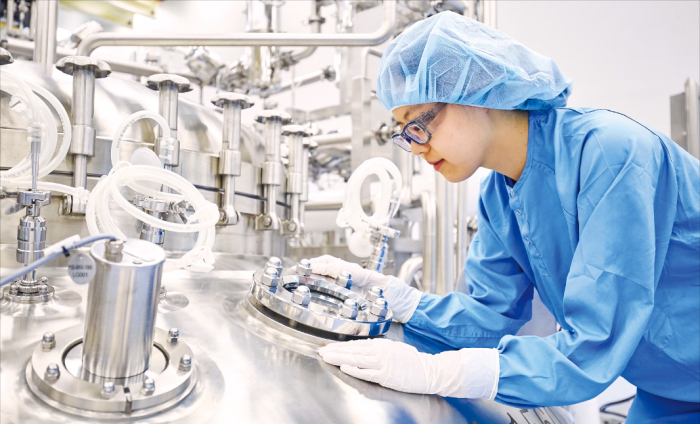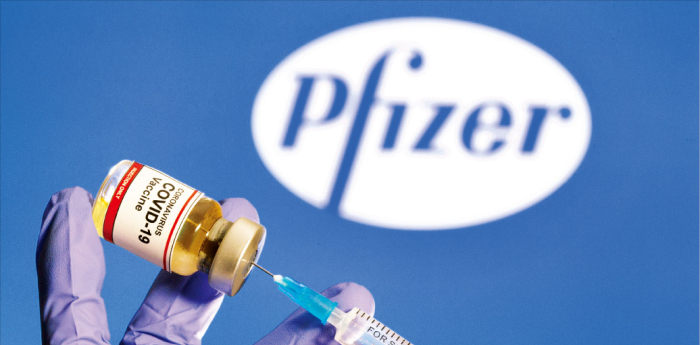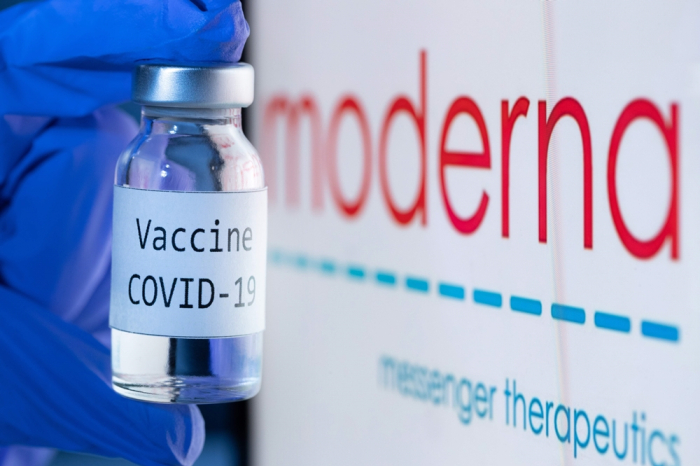[Exclusive] COVID vaccines
Samsung Biologics in talks to produce Pfizer’s COVID-19 vaccine
By May 12, 2021 (Gmt+09:00)
4
Min read
Most Read
LG Chem to sell water filter business to Glenwood PE for $692 million


Kyobo Life poised to buy Japan’s SBI Group-owned savings bank


KT&G eyes overseas M&A after rejecting activist fund's offer


StockX in merger talks with Naver’s online reseller Kream


Mirae Asset to be named Korea Post’s core real estate fund operator



South Korea’s Samsung Biologics Co. is in talks with Pfizer Inc.to produce the US drugmaker’s COVID-19 vaccine under a contract manufacturing organization scheme, government sources said on May 11.
Samsung Biologics, the world’s largest CMO company in terms of capacity, is ramping up facilities at its third plant in Songdo, west of Seoul, to manufacture the Pfizer vaccine, jointly developed with Germany’s BioNTech SE, according to the sources.
“If all goes well, the company will be able to begin mass production of the vaccine in August at the earliest,” said a high-level government source.
The Korean government has said a domestic biopharmaceutical firm is in negotiations to produce COVID-19 vaccine approved in the US and Europe without identifying the Korean company.
Samsung Biologics can make up to one billion doses for 500 million people a year for Pfizer and a deal would aid Korea as well as other Asian nations in efforts to secure more vaccines.
Korea has a contract with Pfizer to purchase 66 million doses of its COVID-19 vaccine. The government has so far signed deals to acquire a total of 192 million doses from developers, including Pfizer, Moderna Inc. AstraZeneca plc., Johnson & Johnson’s pharmaceutical division Janssen and Novavax Inc.
Industry officials said Samsung Biologics’ talks with Pfizer haven’t been finalized as both sides need to address some remaining issues, including a vaccine technology transfer.
On Wednesday, Samsung denied the report by The Korea Economic Daily, saying it does not comment on any negotiations.
Through a regulatory filing on May 12, the company said “the report is not true.”
HIGH CHANCE FOR DEAL
However, industry watchers said chances are high for a deal between the two companies given the Korean company’s strong manufacturing capabilities and global-scale production facilities.
Samsung Biologics’ third plant in Songdo has a production capacity of 180,000 liters, the largest for a single plant in the world.

The biotechnology arm of Samsung Group owns a total capacity of 364,000 liters, and said in August last year it is building a fourth plant to nearly double its capacity to 620,000 liters by 2022. Once completed, the company will account for about 30% of global capacity. Swiss rival Lonza AG, the world’s No. 2 company, has a capacity of 280,000 liters.
Industry officials said if clinched, the Pfizer deal would cement Korea’s prowess as a global hub for vaccine contract manufacturing.
When Moderna signed a vaccine supply deal with the Korean government in December last year, Chief Executive Stephane Bancel said he is aware of Korean companies’ strong manufacturing capabilities and that he expects to build mass production capacity through the partnership.
Both sides also inked an initial agreement to jointly develop vaccine candidates to fight future pandemics and explore opportunities to consign vaccine production to Korean firms.
Korea is already home to the world’s leading contract drug manufacturers, including Samsung Biologics.
WORLD’S TOP CMO FACILITIES
Under CMO contracts, SK Group affiliate SK Bioscience Co. has been producing British-Swedish pharmaceutical giant AstraZeneca’s COVID-19 vaccine since September 2020. It also inked a contract development and manufacturing organization (CDMO) order for a coronavirus vaccine candidate developed by US-based Novavax last year.
Other major Korean companies with huge CMO capabilities include Green Cross Corp. (GC), Isu Abxis and Hankook Korus Pharm.
Most bio startups, including Moderna, do not have their own production facilities and focus only on the research and development of vaccines and biopharmaceutical products.
Moderna, which is considering launching its local branch in Korea, is separately in talks with Korean companies such as Hanmi Pharmaceutical Co. and Green Cross Corp. for CMO contracts, according to media reports.

Pfizer and Moderna use mRNA vaccine, a type that uses a copy of a natural chemical called messenger RNA to produce an immune response, while AstraZeneca uses viral vector vaccine, which uses a modified version of a different virus, the vector, to deliver a piece of genetic code to our cells.
Novavax produces a recombinant protein vaccine that injects fragments of viral proteins into the human body as antigens, a method used in flu and hepatitis B vaccines.
For Samsung Biologics to manufacture the Pfizer vaccine, it must get approval from relevant governments to confirm the appropriateness of its facilities for vaccine production.
The quality check, known as validation, used to take one to two years, but Samsung Biologics has slashed the period to less than a year due to its advanced facilities, according to industry officials.
Write to Shin-Young Park and Sun A Lee at nyusos@hankyung.com
In-Soo Nam edited this article.
More to Read
-
 COVID vaccinesKorean pharmas may turn into global vaccine makers on Biden remarks
COVID vaccinesKorean pharmas may turn into global vaccine makers on Biden remarksMay 07, 2021 (Gmt+09:00)
4 Min read -
 Gene CMOSK acquires 70% stake in Yposkesi to jump into cell, gene CMO business
Gene CMOSK acquires 70% stake in Yposkesi to jump into cell, gene CMO businessMar 31, 2021 (Gmt+09:00)
2 Min read -
 Biopharma CMOModerna deal shows Korea’s prowess as global hub for biopharma CMO
Biopharma CMOModerna deal shows Korea’s prowess as global hub for biopharma CMODec 30, 2020 (Gmt+09:00)
3 Min read
Comment 0
LOG IN


